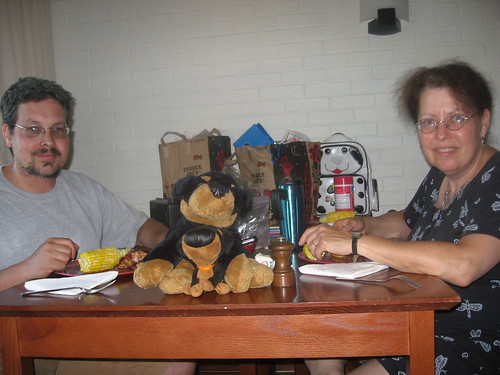🦋 Lo desconocido
In the third "teachings of el maestro de Tarca" poem, the customary introduction is reversed: here Cifar is speaking to the teacher. This suggests to me that the other poems in this series, where el maestro is speaking "to me" or "to us", are told from the POV of Cifar. The two main difficulties for me in translating this poem were the conditional tense of "jurarÃa" and the parallelism in the final two lines. I'm not really sure what conditional tense does -- from its name it sounds like it has a similar function to subjunctive. Schulman translates "jurarÃa" as "I would swear", which sounds ok, but makes me ask what the condition is. I am going with "I could swear" which sounds a little more natural to my ears. (As a weak bonus, "I could swear it" scans the same as "jurarÃa" -- though in the rest of the poem, I am not doing much to preserve the metric pattern.) The last two lines, el maestro's response to Cifar, are the koanic element of this poem. In the original there is a strong parallelism: "Lo conocido/ es lo desconocido." I am going with a literal rendering to preserve this parallelism even though I think it mangles the meaning of the words slightly. Schulman uses the wordy "That which is known/ is the unknown", which I think is slightly closer to Cuadra's meaning, but not nearly as pleasant to read.
EL MAESTRO DE TARCA (â…¢)
Maestro, dijo Cifar,
seguà tu consejo
y crucé el Lago
buscando la isla desconocida.
Fui con viento benévolo
a la más lejana, virgen y perdida
Pero
que yo conocà esa isla
jurarÃa!
que su sonoro acantilado
devolvió mi canto un dÃa
jurarÃa!
que era la misma mujer
casi lo jurarÃa!
Sonrió el maestro y dijo:
Lo conocido
es lo desconocido. |
EL MAESTRO DE TARCA (â…¢)
Maestro, said Cifar,
I followed your counsel
and crossed the Lake
in search of the unknown island.
I sailed with a gentle wind
to its farthest point, untouched and lost
But
I knew this island
I could swear it!
her echoing cliffs
had once already returned my song
I could swear it!
it was the same woman
I could almost swear it!
El maestro smiled and spoke:
The known
is the unknown. |
The fourth poem in the series is a sweet little gem.
EL MAESTRO DE TARCA (â…£)
Dijo el maestro
de Tarca:
Coge la cigarra
del ala
Al menos
llevas en la mano
el canto.
|
EL MAESTRO DE TARCA (â…£)
Thus spoke el maestro
de Tarca:
Seize the locust
by its wing
At least
carry in your hand
its song.
|
(I am tampering with the voice of the verb "llevas" in the next-to-last line -- Schulman renders it as "you carry" which is true to the original; whereas "coge" is imperative, "llevas" is indicative.) (Update: here is a better idea.)
posted afternoon of Saturday, July 9th, 2011
➳ More posts about Poets of Nicaragua
➳ More posts about Poetry
➳ More posts about Readings
➳ More posts about Translation
➳ More posts about Writing Projects
➳ More posts about Projects
➳ More posts about Cicadas
|




